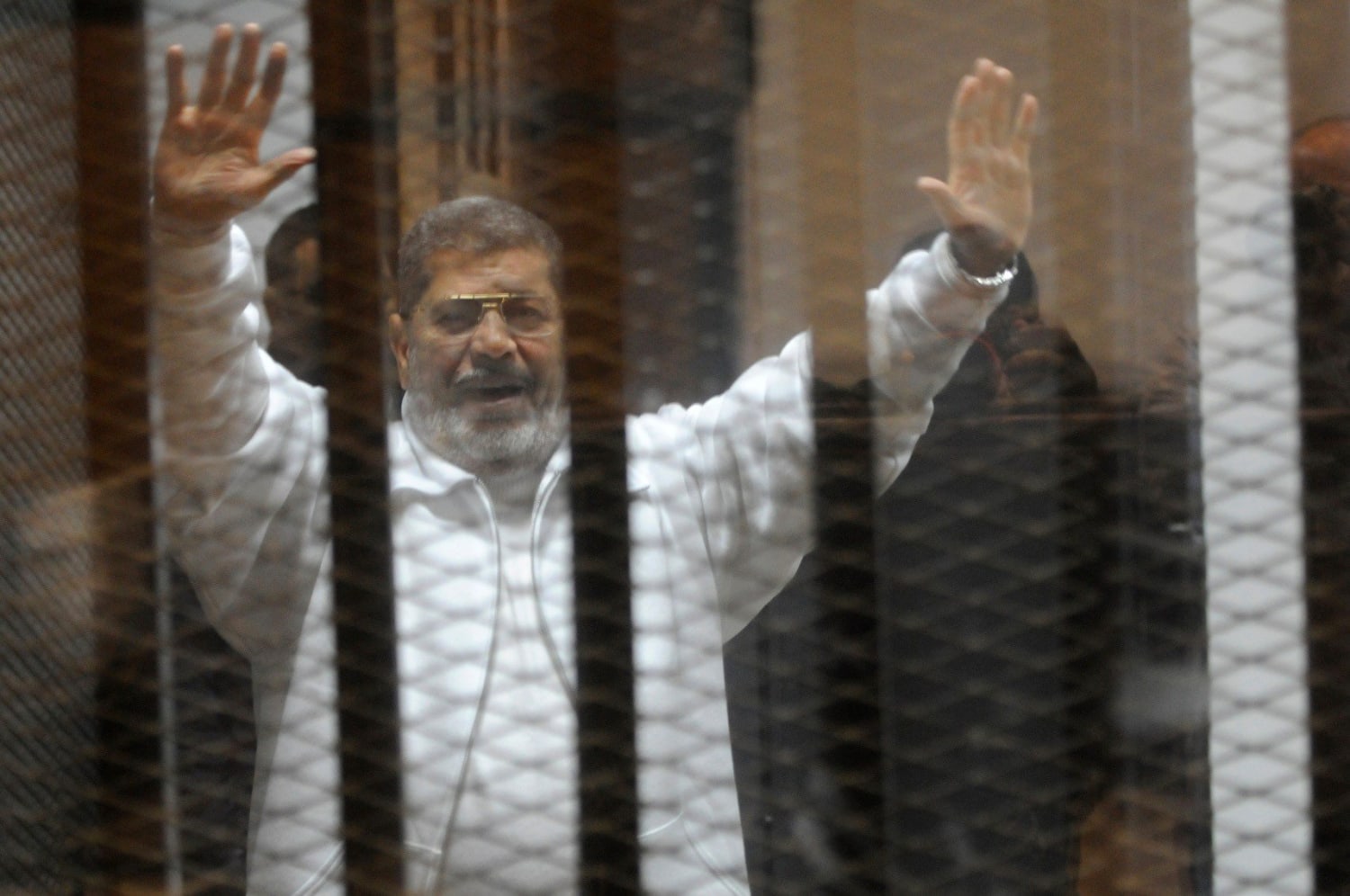
An Egyptian court sentenced Mohamed Morsi, the country’s deposed president, to death on Saturday over his involvement in a prison break during Egypt’s 2011 popular uprising.
Mr. Morsi, a member of the Muslim Brotherhood, was the country’s first democratically elected president and came to power following the 2011 revolt that ended the three decades of autocratic rule of Hosni Mubarak. After a divisive and chaotic year in office, Mr. Morsi was ousted from power by the military in July 2013 following another wave of protests.
The jailbreak case was a sign of the sweeping reversal of Egypt’s political tide since the 2011 uprising. The former head of state had been detained in a revolution that many Egyptians hoped would bring about an end to arbitrary detentions and other abuses by the security state.
Saturday’s ruling was read out in a courtroom in a converted auditorium at a police academy on the edge of Cairo. Mr. Morsi, who was sentenced along with more than 100 others, and a crowd of other defendants appeared inside a glass and metal cage inside the courtroom. The judge Shaaban el-Shami’s words triggered shouts from inside the cage, muffled by the glass. As the session ended, the prisoners chanted “Down with military rule!”
The escape came after Mr. Morsi and other Brotherhood officials had been arrested either from their homes or during protests, along with thousands of other Egyptians swept up in the unrest. Mr. Morsi had been held for two days at Wadi Natroun Prison on the highway between Cairo and Alexandria.
The prison break took place on the night of Jan. 28, 2011, following a pivotal day of street battles during the revolution. In the chaos of the uprising, some of the prison guards had already abandoned their posts. Armed men overran the prison’s remaining guards, freeing thousands of inmates, including Mr. Morsi and other Islamist leaders.
Among those sentenced to death on Saturday were some 70 Palestinians, including many tried in absentia. Prosecutors alleged that armed Palestinians freed inmates from Egyptian prisons after entering the country via tunnels from the neighboring Gaza Strip.
Saturday’s ruling was the second against Mr. Morsi in less than a month. In April, he was sentenced to 20 years in prison on charges of inciting violence and overseeing the illegal detention and torture of protesters while he was in office. That case centered on a deadly street brawl between Brotherhood supporters and opponents outside a presidential palace in Cairo in December 2012.
The former president faces separate trials over charges of leaking sensitive documents, fraud in connection with a Brotherhood-backed economic program, and insulting the judiciary.
Before they can be carried out, the death sentences must be approved by Egypt’s top Sunni Muslim religious authority, the Grand Mufti, who is scheduled to make a ruling on June 2nd. The convictions are also open to appeal through the court system.





























